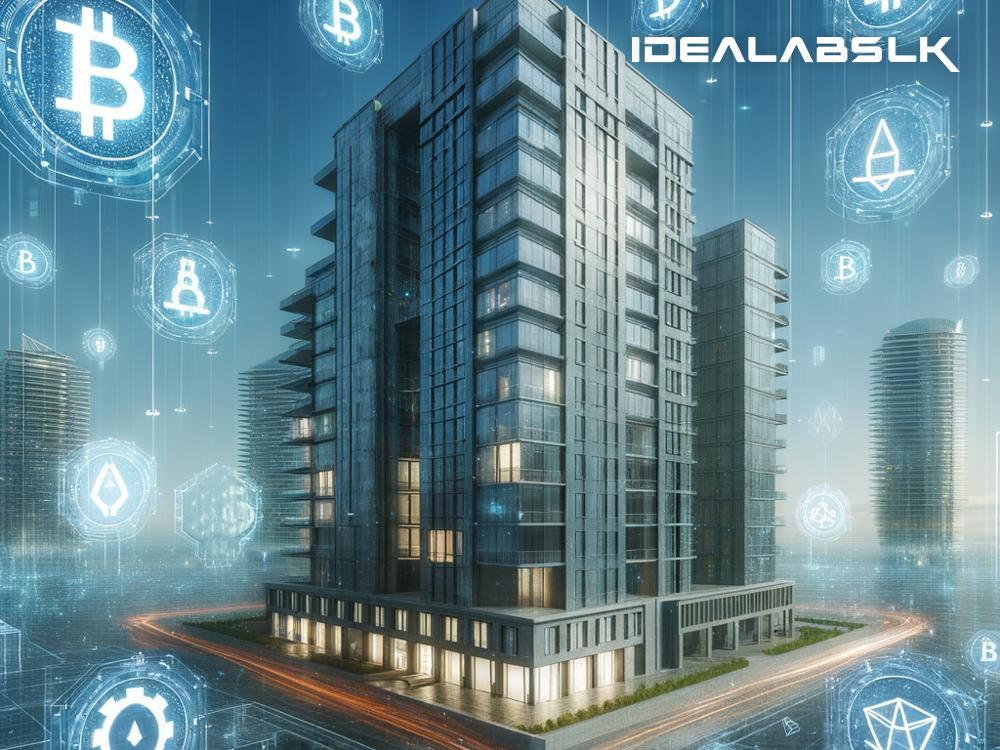Title: Simplifying Property Investment: How Blockchain is Revolutionizing Real Estate with Tokenization
Introduction Picture a world where investing in a skyscraper or a beachfront villa is as easy as buying a cup of coffee. Sounds too good to be true? Well, not anymore. Thanks to the magic of blockchain technology, real estate is undergoing a significant transformation, making property investment accessible to everyone. In this article, we're diving into how blockchain is tokenizing real estate assets for fractional ownership, simplifying the investment process, enhancing transparency, and opening doors to global investors.
Understanding Blockchain and Tokenization Before we leap into the realm of tokenized real estate, let's quickly brush up on some basics. Blockchain is essentially a digital ledger that securely records transactions across many computers. The beauty of blockchain is that it's highly secure, transparent, and nearly impossible to tamper with.
Tokenization, on the other hand, is a process where real-world assets, like real estate, are converted into digital tokens on the blockchain. Think of these tokens as tiny digital pieces of a property that you can own, trade, or sell.
Why Tokenize Real Estate? The traditional real estate market, while lucrative, has its share of barriers. High entry costs, geographical restrictions, complex transactions, and lack of liquidity are just a few hurdles that discourage average investors. This is where tokenization steps in, offering a solution to these challenges by enabling:
-
Fractional Ownership: Imagine owning a piece of a luxury apartment in New York or a commercial property in Tokyo without having to buy the entire thing. Tokenization allows investors to own fractions of property, significantly lowering the investment barrier.
-
Global Accessibility: With real estate tokens, your geographical location no longer restricts your investment opportunities. Anyone with an internet connection can invest in properties worldwide, right from the comfort of their homes.
-
Improved Liquidity: Selling real estate is traditionally time-consuming and complex. However, because tokens can be traded like stocks on a blockchain platform, they can be bought or sold much more quickly, improving the asset's liquidity.
-
Transparency and Security: Blockchain's transparent nature ensures that every transaction is recorded and traceable, reducing fraud risk. Moreover, smart contracts automate and secure transactions, making the process smoother and safer.
How Does Tokenization Work in Real Estate? Tokenizing real estate involves a few critical steps:
-
Asset Selection and Evaluation: A property is chosen to be tokenized, and its value is assessed by professionals.
-
Legal Framework: Due to the novelty of tokenization, ensuring compliance with local laws and regulations is crucial. Legal structures are established to protect investor rights.
-
Creation of Digital Tokens: The property's value is divided into digital tokens. These tokens represent shares in the property and are then issued on a blockchain platform.
-
Investment: Investors can buy tokens, effectively owning a fraction of the property. The process is streamlined through blockchain technology, making it accessible to investors worldwide.
-
Trading Tokens: Investors can trade these tokens on secondary markets, providing liquidity and flexibility to exit investments as desired.
Benefits for Investors and Property Owners Tokenization isn't just a boon for investors; property owners stand to benefit as well. For investors, it means lower entry points, diversification of their investment portfolio across multiple properties, and enhanced liquidity. Property owners, on the other hand, can unlock the value of their assets more easily, attract a global pool of investors, and ensure faster and more efficient transactions.
Challenges and Considerations Despite its promising prospects, tokenization in real estate is still emerging and faces its set of challenges. Regulatory uncertainty, technological complexity, and market acceptance are some issues that need to be addressed as the industry evolves. Nonetheless, the potential of blockchain to democratize real estate investment is undeniable.
Conclusion The integration of blockchain into real estate is redefining property investment, making it more accessible, transparent, and flexible than ever before. By breaking down traditional barriers through tokenization, we're stepping into a new era of real estate investment that's open to anyone, anywhere. As this technology continues to mature, it's not unreasonable to expect a future where buying a piece of a property is as simple and common as purchasing stocks today. Welcome to the future of real estate, powered by blockchain.

